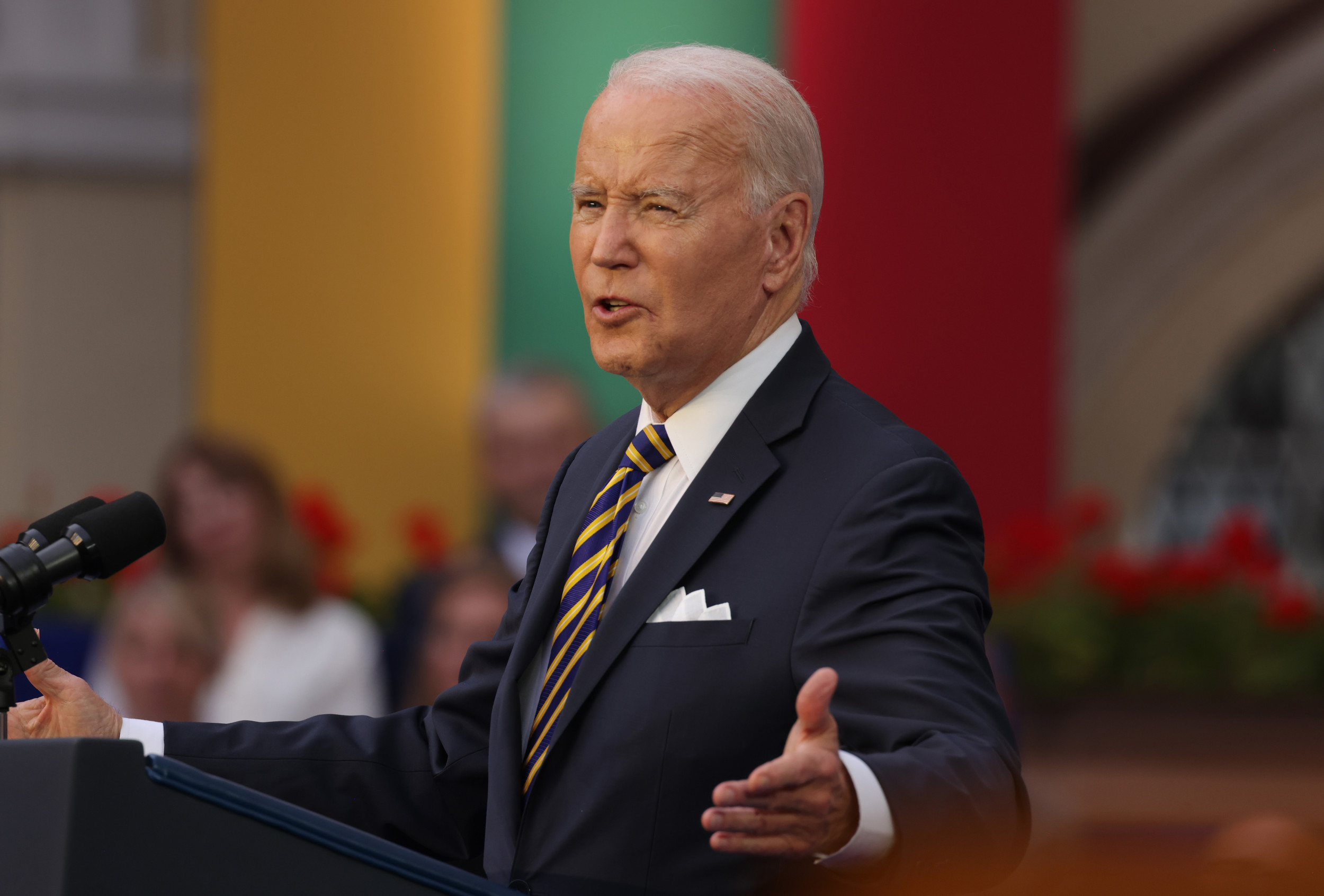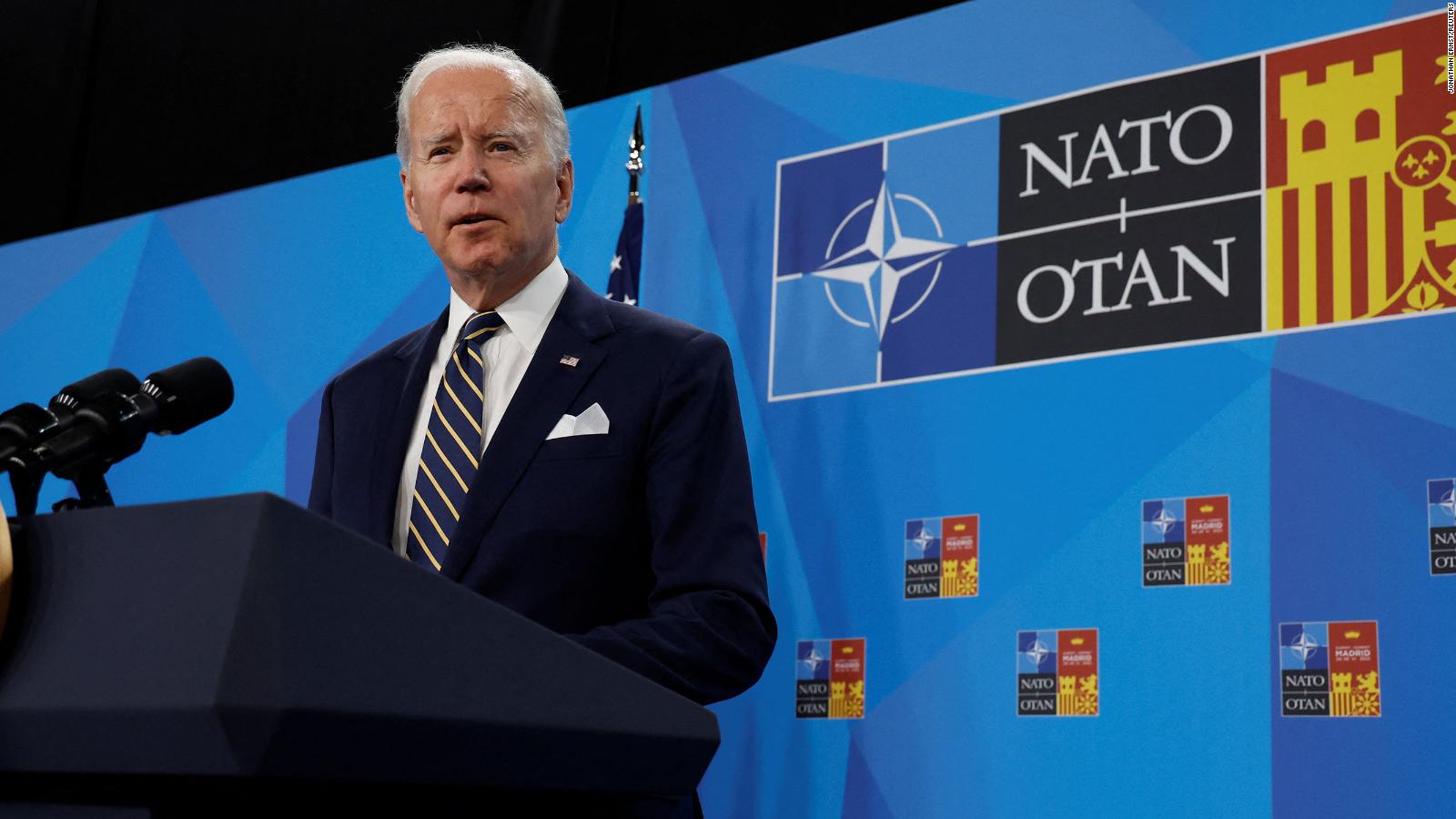Biden’s Stance on NATO: Biden Nato

Biden nato – Since becoming President, Biden has consistently expressed strong support for NATO, viewing it as a crucial alliance for collective defense and transatlantic security. He has emphasized the need to strengthen NATO’s capabilities and ensure its adaptability to evolving security challenges.
Rationale for Biden’s Support
Biden’s support for NATO is rooted in his belief that it remains the most effective mechanism for deterring and responding to threats against its members. He believes that NATO’s collective defense principle, Article 5, provides a vital security guarantee, especially in the face of potential aggression from Russia.
Initiatives and Speeches
Biden has undertaken several initiatives and delivered speeches to reaffirm his commitment to NATO. He has:
- Increased US troop presence in Europe to bolster NATO’s deterrence capabilities.
- Launched the NATO 2030 initiative, aimed at modernizing the alliance and adapting it to future challenges.
- Delivered a speech at the Munich Security Conference in 2023, where he emphasized the importance of NATO unity and the need to invest in collective defense.
Biden’s address to NATO allies in Brussels was a crucial moment in the ongoing conflict in Ukraine. For the latest updates on Biden’s speech and the international response to the war, visit biden news today. Biden emphasized the importance of unity and resolve among NATO members in the face of Russian aggression.
NATO’s Role under Biden’s Presidency
Under Biden’s leadership, NATO has faced a complex and evolving security landscape. The organization has played a crucial role in responding to the Russian invasion of Ukraine, coordinating defense efforts and providing military aid to Ukraine. NATO has also strengthened its deterrence and defense posture in Eastern Europe, increased its presence in the Black Sea region, and intensified its cooperation with partners such as Japan, Australia, and South Korea.
Challenges and Opportunities
NATO has faced significant challenges under Biden’s presidency, including the ongoing war in Ukraine, the rise of China, and the threat of terrorism. The war in Ukraine has put a strain on NATO’s resources and tested its unity, but it has also demonstrated the organization’s resilience and determination. NATO has also faced challenges in adapting to the changing security environment, including the increasing use of cyber warfare and the proliferation of weapons of mass destruction.
Despite these challenges, NATO has also seized opportunities to strengthen its role and enhance its capabilities. The organization has increased its focus on collective defense, strengthened its partnerships with non-NATO countries, and invested in new technologies. NATO has also played a leading role in addressing emerging security threats, such as climate change and the rise of artificial intelligence.
Impact of Biden’s Policies
Biden’s policies have had a significant impact on NATO’s effectiveness. Biden has prioritized NATO’s role in collective defense, increased the organization’s budget, and strengthened its partnerships with non-NATO countries. Biden has also been a strong advocate for NATO’s enlargement, and has supported the accession of Montenegro and North Macedonia to the organization. These policies have helped to strengthen NATO and enhance its ability to respond to security challenges.
Transatlantic Relations and NATO

Transatlantic relations form the backbone of NATO’s operations, fostering cooperation and collective security between North America and Europe. These relations provide a strong foundation for NATO’s mission to ensure the defense and security of its member states.
Under Biden’s presidency, transatlantic cooperation within NATO has been a key priority. Biden has emphasized the importance of strengthening these relations, recognizing that a united and cohesive NATO is essential for addressing global challenges and threats. He has actively engaged with European leaders to reaffirm the US commitment to NATO and to work together on shared security concerns.
Biden’s Efforts to Strengthen Transatlantic Cooperation, Biden nato
Biden’s efforts to strengthen transatlantic cooperation within NATO have included:
– Convening a NATO summit in June 2021, where he reaffirmed the US commitment to Article 5 of the NATO treaty, which states that an attack on one member state is considered an attack on all.
– Appointing a special envoy to the European Union to enhance diplomatic engagement and cooperation on a range of issues, including security and defense.
– Increasing US military presence in Europe, including the deployment of additional troops and equipment to bolster NATO’s deterrence and defense capabilities.
Challenges and Opportunities for Transatlantic Relations
While Biden has made significant progress in strengthening transatlantic relations, there are still challenges and opportunities that need to be addressed:
– Challenges:
– The ongoing conflict in Ukraine and its impact on NATO’s unity and cohesion.
– Differences in perspectives on defense spending and burden-sharing within NATO.
– The rise of populism and nationalism in some NATO member states, which could potentially weaken the alliance.
– Opportunities:
– The potential for NATO to expand its role beyond traditional defense and security issues, such as addressing climate change and cyber threats.
– The opportunity to strengthen cooperation between NATO and other international organizations, such as the EU and the UN.
– The possibility of developing new mechanisms for transatlantic cooperation, such as a permanent NATO-EU Council.
